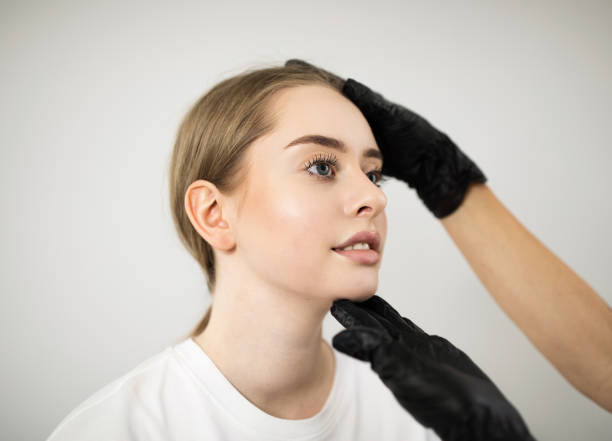Rhinoplasty(عملية تجميل الأنف في الرياض), often called a nose job, is a popular cosmetic procedure that reshapes and enhances the nose’s appearance. Whether done for aesthetic reasons or to improve breathing, understanding the recovery process is crucial for anyone considering this surgery. Recovery not only affects how quickly you can return to daily life but also impacts the final results and long-term satisfaction.
Understanding the Initial Recovery Phase
The first days after surgery are critical for healing. Your body initiates a natural healing response to address the surgical wound, leading to swelling, bruising, and some discomfort. It is normal to experience congestion since internal swelling can block nasal passages temporarily.
During this period, it’s important to rest with your head elevated to reduce swelling and avoid activities that could put pressure on your nose. Patients are often advised to use cold compresses and take prescribed medications to manage pain and inflammation.
Managing Swelling and Bruising Effectively
Swelling and bruising typically peak within the first 48 to 72 hours but gradually improve over the next few weeks. These symptoms are part of the body’s inflammatory process and signal that healing is taking place.
To help reduce swelling, avoid strenuous exercise, hot showers, and exposure to sunlight. Wearing loose clothing and avoiding glasses resting on the nose also prevents additional irritation. A balanced diet rich in vitamins supports tissue repair and overall recovery.
The Importance of Follow-Up Visits for Safe Healing
Scheduled follow-up appointments allow your surgeon to monitor your healing progress, remove splints or stitches if necessary, and address any emerging concerns. These visits are vital to ensure the nose is healing symmetrically and that no complications are developing.
Be sure to communicate openly with your healthcare provider about any unexpected symptoms such as severe pain, prolonged bleeding, or signs of infection. Early detection of issues can make a significant difference in treatment outcomes.
Resuming Daily Activities Post-Rhinoplasty
Most patients can return to light daily tasks within a week after surgery, but full recovery takes time. Avoid heavy lifting, bending, or vigorous exercise for several weeks to prevent increased blood pressure and the risk of bleeding.
Driving should be avoided until you feel completely comfortable and are no longer taking sedative painkillers. Protecting your nose from accidental bumps or pressure during the recovery is essential to prevent altering the surgical results.
Long-Term Care for Lasting Results
While the visible signs of swelling diminish within weeks, internal healing continues for months. Avoiding smoking, excessive sun exposure, and protecting your nose from trauma ensures the best outcome.
Gentle skincare and moisturizing around the nasal area help maintain healthy skin during recovery. Long-term patience is key, as subtle changes will continue beyond the initial recovery phase.
Emotional and Psychological Aspects of Recovery
Recovering from rhinoplasty is not just physical; emotional fluctuations are common. Changes in appearance may take time to feel natural, and initial swelling can temporarily alter your facial features.
Having realistic expectations and mental preparedness can ease anxiety. Support from friends, family, or professional counseling can be beneficial, especially if you experience stress related to the recovery process.
Why Choose Rhinoplasty in Riyadh for Your Surgery?
Riyadh offers advanced medical facilities and experienced surgeons specializing in rhinoplasty procedures. The city’s healthcare providers often incorporate the latest techniques and technologies to enhance safety and results.
Choosing Rhinoplasty in Riyadh means access to personalized care and follow-up plans tailored to your unique needs, ensuring a smooth recovery journey. The understanding of cultural and aesthetic preferences can also help achieve results aligned with patient expectations.
Tips to Speed Up Your Rhinoplasty Recovery Safely
-
Follow all post-operative instructions from your surgeon carefully.
-
Stay hydrated and maintain a nutritious diet to support healing.
-
Keep your head elevated when resting or sleeping.
-
Avoid smoking and limit alcohol consumption.
-
Protect your nose from direct sunlight and temperature extremes.
-
Wear comfortable clothing and avoid any activity that may impact your nose.
Conclusion
Recovering from Rhinoplasty in Riyadh involves a combination of physical healing, patient care, and emotional adjustment. By understanding what to expect during each phase of recovery and following expert guidelines, patients can enhance their healing experience and achieve their aesthetic and functional goals safely.
Frequently Asked Questions
1. How long does the swelling last after rhinoplasty?
Swelling is most prominent during the first few days and may last several weeks, gradually decreasing over time. Full reduction in swelling can take several months.
2. When can I resume exercise post-rhinoplasty?
Light activities can usually be resumed after about two weeks, but strenuous exercise and heavy lifting should be avoided for at least four to six weeks.
3. Is it normal to feel nasal congestion after the surgery?
Yes, nasal congestion is common due to internal swelling and should improve as healing progresses.
4. Can I wear glasses after rhinoplasty?
It’s best to avoid resting glasses on the nose for at least six weeks to prevent pressure on the healing tissues.
5. Will I have scars after rhinoplasty?
Most rhinoplasty scars are minimal and placed in inconspicuous locations, typically inside the nose, so visible scarring is rare.
6. How can I manage emotional stress during recovery?
Maintaining realistic expectations, seeking support from loved ones, and discussing concerns with your surgeon or counselor can help manage emotional stress effectively.







